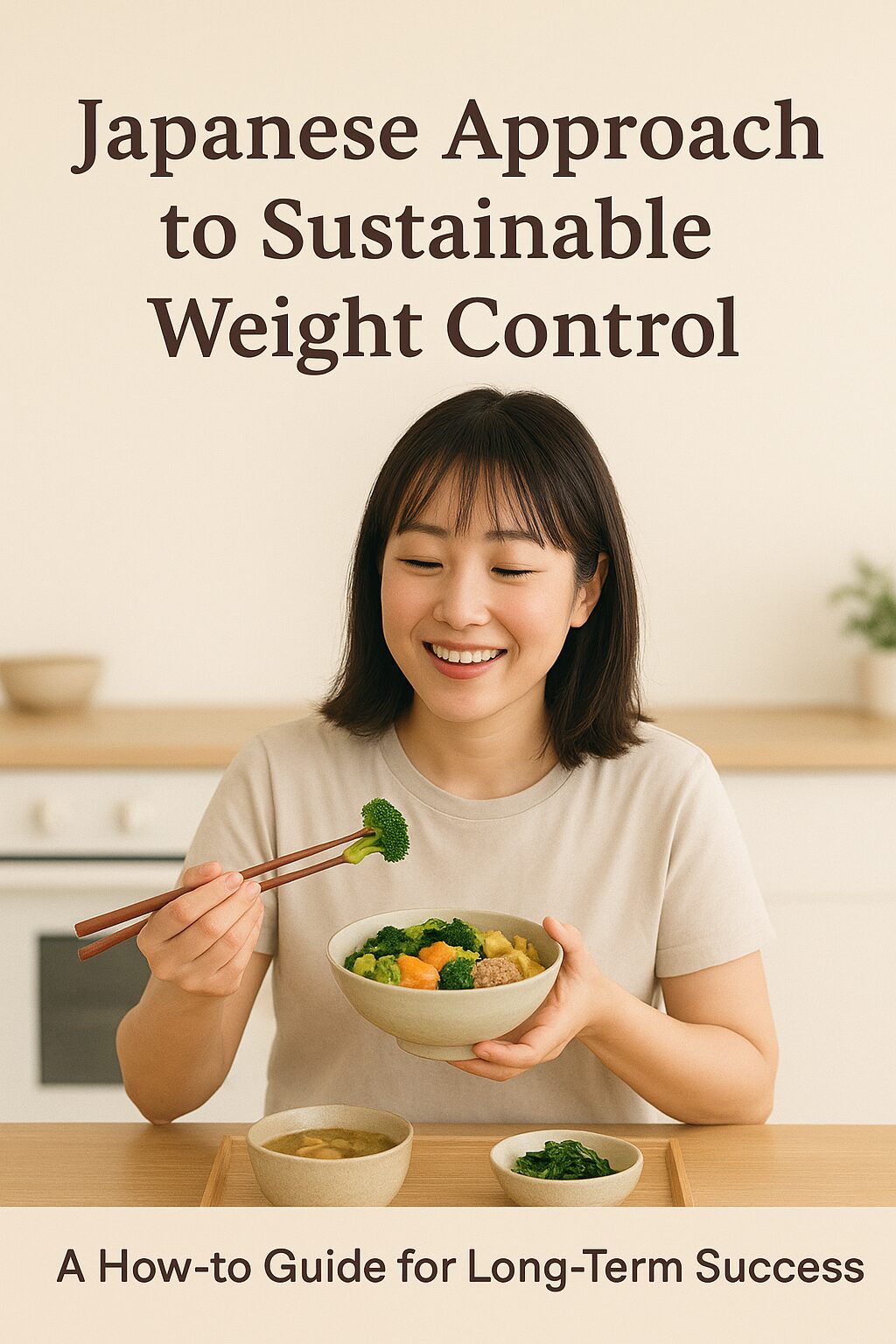In many parts of the world, dieting is often associated with extremes—cutting out entire food groups, following restrictive plans, or chasing the latest health fad. But in Japan, weight control has long been viewed through a different lens: balance, moderation, and sustainability. For women over 50, especially, this approach offers valuable lessons in maintaining health without deprivation.
The Japanese Philosophy of Balance
At the core of Japanese eating habits is the idea of variety in small portions.
Multiple Dishes, Small Servings
Instead of one large entrée, traditional Japanese meals feature several small dishes: rice, miso soup, vegetables, fish, and pickles. This creates a balanced intake of nutrients without overeating.
Portion Awareness
Serving sizes in Japan are naturally smaller. This encourages mindful eating and prevents the kind of overconsumption common in Western diets.
Nutrient-Dense Foods Over Empty Calories
Rather than focusing on what to eliminate, the Japanese diet emphasizes foods that nourish the body.
Whole Grains and Vegetables
Staples like brown rice, barley, and root vegetables provide steady energy and are packed with fiber, vitamins, and minerals.
Fish and Soy Protein
Fish is a common protein source, rich in omega-3 fatty acids that support heart and brain health. Soy-based foods such as tofu, natto, and miso deliver plant protein and phytoestrogens beneficial for women in menopause.
Fermented Foods
Fermented staples such as miso, natto, and tsukemono (pickled vegetables) support digestion, gut microbiota, and immune function.
For a deeper look at the benefits of traditional Japanese foods, the Japan National Tourism Organization provides an accessible overview.
The Role of Mindful Eating
Japanese food culture extends beyond ingredients—it’s about how you eat.
Slow and Intentional Meals
Meals are often enjoyed slowly, allowing time to savor flavors. This naturally reduces overeating and improves digestion.
Respect for Food
Cultural values emphasize gratitude for food, which fosters healthier, more mindful eating patterns.
Sustainability vs. Fad Diets
Extreme diets may deliver short-term results, but they often harm long-term health.
Risks of Restrictive Diets
Avoiding entire food groups can lead to nutrient deficiencies, fatigue, and loss of muscle mass. For women over 50, this may worsen bone density and cardiovascular risks.
Japanese Longevity and Lifestyle
Japan is home to some of the world’s longest-living populations, including Okinawa. Their health is tied not to diet fads, but to steady, balanced meals, active daily life, and strong community ties.
You can read more about the Okinawan lifestyle in this National Geographic article.
How Juveriente Supports Balanced Living
At Juveriente, we embrace this Japanese approach to sustainable health. Instead of extremes, we encourage balance and natural support for the body’s changes with age.
- Effisoy®: Inspired by Japan’s lower incidence of severe menopause symptoms, Effisoy helps restore the body’s natural hormone balance with fermented soy isoflavones.
- Bone Strength Complex: Combining mandarin extract rich in beta-cryptoxanthin with other nutrients, this supplement supports bone density, especially important for women after 50.
By blending traditional Japanese food wisdom with modern nutritional science, we aim to help women enjoy long-lasting vitality.
Final Thoughts
The Japanese approach to sustainable weight control is not about restriction—it is about harmony. Through small portions, nutrient-dense foods, mindful eating, and cultural respect for balance, it provides a powerful model for women over 50 seeking lasting health. By embracing this wisdom, along with natural support like Juveriente’s supplements, you can achieve weight control that feels both enjoyable and sustainable.







